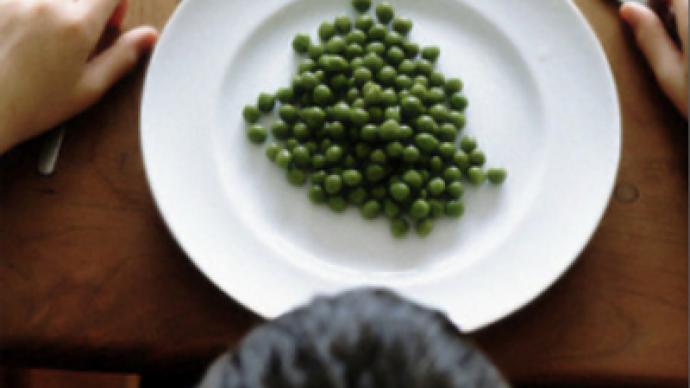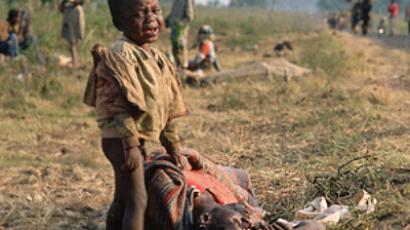Forced to be vegetarian—is it coming to that?

Vegetarians find their numbers swelling. This is not because vast numbers of people are suddenly convinced that “meat is murder”. No, because the sagging global economy is pushing meat further out of reach.
“As a single woman, I find it very hard to survive,” says Yolanda Steynberg. “I only eat meat on occasion. It is definitely not part of my regular diet anymore. I get lucky if I’m invited out for dinner.”
Walk through townships or ask construction crews and it is no shock to hear that they only eat meat sporadically. Many South Africans are accustomed to lives that are mainly sustained by starch.
The National Curriculum includes a lesson on standards of living. Students are taught that the lowest class is defined, in part, by the fact that towards the end of the month their diets are composed of mainly bread and vegetable soup.
But according to the national standards Yolanda should not be having this experience. Her characteristics do not match the profile of someone with limited food choices. She is an experienced college professor in her upper 40s. She is also the owner of a small townhouse and a Mercedes-Benz.
“I consider myself an economic vegetarian,” she says. And there are a growing number of people like her.
Benita Wiegand, a rental agent, doesn’t have a nifty title for the situation but she also has trouble ensuring that meat will be on the table every day. She tries to budget meat as some would budget their salaries. Her goal is for her and her son to have a piece every night for dinner.
Last Sunday, she was barely saved from disappointment. They went to cookout at her sister’s the night before. “There was so much food left over that we brought some home. And that is the only reason we had meat that night,” she said.
On Monday, she wasn’t exactly sure what she and her son would eat.
About half of South Africa’s population is middle class. These people tend to spend the highest portion of their income on meat. Or at least they used to. Now, the middle class are increasingly finding themselves burdened with problems that are generally considered beneath them. Not having enough meat to eat is one of those.
Pastas, potatoes, beans and vegetables are becoming more prominent on peoples’ plates. People are also beginning to pass over the super market for the butcher, hoping for bargains.
Mirroring a larger trend
But this trend is not limited to South Africa, which is a net meat importer. Its main supplier, the European Union, is also facing a meat decline this year.
Meat Demand Trends gave a gloomy forecast for 2009, noting that “in the 12 weeks ended November 2nd, 2008 purchase of all categories of meat fell compared to the same period in 2007.”
“Today demand for meat is falling across the EU, although the low value of sterling has made the UK product more competitive. Slowing demand in markets such as Germany and France may soon have a negative effect on UK’s sales,” the report said.
The current recession is displaying many of the characteristics of a recession that occurred in 1991, which resulted in a general decline of demand for meat, according the author of the report, Debbie Butcher, Assistant Market Analyst of AHDB Meat Services.
Evidence includes “unprecedented growth” in sales for discount meat retailers. And, trends that show Europeans buying cheaper cuts and spending more money on mince.
Although many are resisting economic vegetarian status, people around the globe are definitely paying closer attention to their meat budgets.
Michelle Smith for RT
Read also Real Men Eat Real Meat And Drink No Beer













